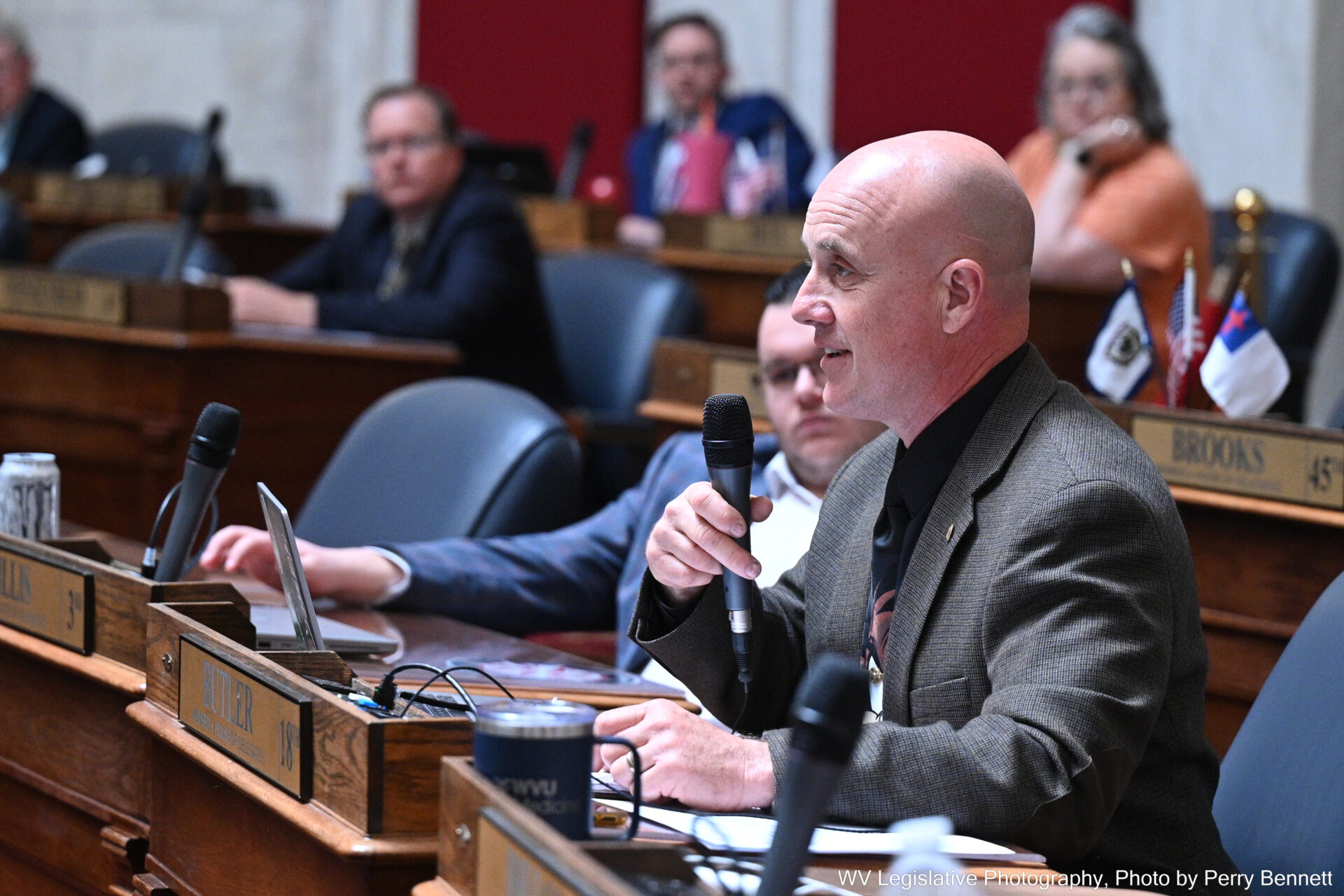A suggestion was made during the Joint Committee on Technology and Infrastructure interim meeting this week to create something similar to a Blue Ribbon Commission, focused on improving the state’s secondary roads.
That suggestion came from Del. Jim Butler, R-Mason, who said the state’s Roads to Prosperity $2.8 billion bonding project has obviously not worked for maintaining secondary roads, especially in his area.
“We’ve got Route 35 down here in Mason County, which was a big thing,” Butler said, “But that was already in construction or in the works before the Roads for Prosperity Bond was passed. And it hasn’t done anything good I’ve seen for our secondary roads. Many county routes in the vicinity of the NUCOR plant are among the areas that are really bad that I get complaints about.”
Butler said his suggestion is not about another Blue Ribbon Road Commisson on HIghways like the one set up in 2012. He said improvements won’t just come with funding, but an organized plan that is specific to secondary road maintenance.
“It needs to be our Technology and Infrastructure Committee to begin this process,” Butler said. “Get the Department of Highways into our normal meeting and spend some time and figure out what the problems are and not make it just a big spending proposal.”
During his Wednesday media briefing, WVPB asked Justice about Butler’s suggestion and comments. He began by saying state road conditions and the overall Department of Highways have undergone a positive transformation during his time in office.
“When I walked in the door, we needed money so badly that we sold our own equipment in order to generate some dollars,” Justice said. “Today, we have an abundance of top level, brand new maintenance equipment, and we’re doing stuff all over the place.”
Justice then noted that Butler’s home district concerns were being addressed.
“My staff met yesterday with people in Mason County on the condition of roads there,” he said.
Justice called the Roads to Prosperity program “absolutely successful,” but added that it is a work in progress.
“We’re going to keep on doing everything we can,” Justice said. “And we’re going to keep on making every improvement that we can make. But we’re not going to do that by just creating a situation where we create a tax burden on our people to just do more and more and more and more instantaneously and everything.”
Butler said road maintenance funding doesn’t necessarily need to be increased but prioritized in a different way.
“I want it to be something where we get down in the weeds and figure out how we can better finance our roads,” Butler said, “And how can we make sure that that money is well spent and we get good results.”
